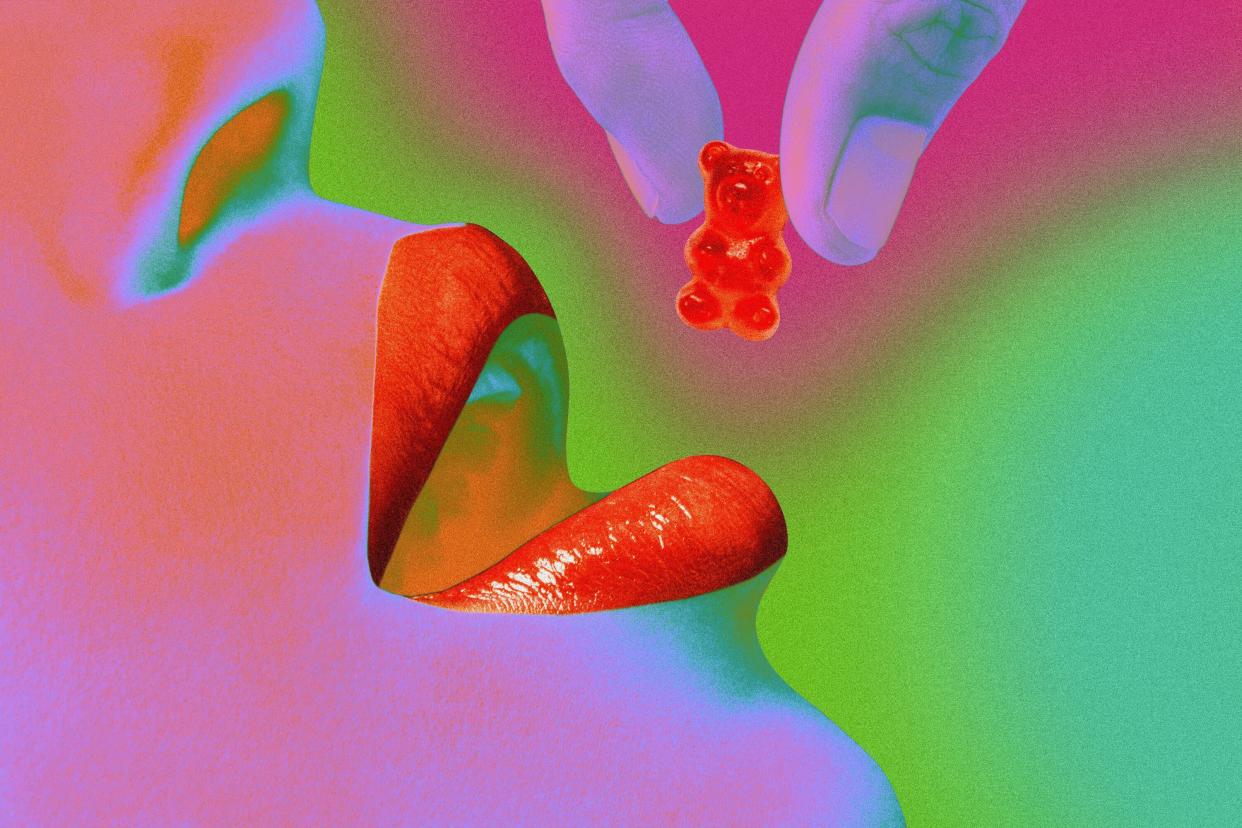What are libido gummies — and can they really help women improve their sex drive?

Gummies and other supplements on the market proclaim they can help with anything from sleep to stress levels — even getting women in the mood for sex. But can these so-called libido-boosting gummies and supplements — like Olly’s Lovin’ Libido and Elm & Rye’s Libido gummies — really do what they claim?
Experts are skeptical.
While these products vary in terms of active ingredients, popular elements include ashwagandha, an evergreen shrub and member of the nightshade family that is said to help reduce stress, and L-arginine, an amino acid that helps keep blood vessels open. And some “may have merit,” Dr. Elizabeth Swenson, an ob-gyn at online health care provider Wisp, tells Yahoo Life, “since natural ingredients like L-arginine have been associated with potential libido-boosting effects.”
But there are dozens of other ingredients that product manufacturers claim can have an impact on your libido — despite the fact, says Dr. Tiffany Pham, an ob-gyn and a medical adviser for female health app Flo Health, that there is “a lack of robust research into the claims behind these supplements.”
She tells Yahoo Life that “while there may be anecdotal evidence, or these supplements may be used in traditional Chinese or Ayurvedic medicine, there is a lack of clinical evidence to fully support these claims.”
Pham notes that while there is some “promising research” on certain supplements that allege to help increase libido — such as ginseng, ginkgo, fenugreek, kava, Tribulus terrestris and damiana — the studies are “limited in their scope and their ability to be applied to a broader patient population.”
What are the risks?
There’s reason to be a bit wary about popping a gummy to see if it does work. Dr. Mickey Karram, a gynecologist and urogynecologist, notes that supplements in general are not regulated by the Food and Drug Administration (FDA).
“While there are supplements on the market that claim to help improve libido, it’s important to note that the effectiveness and safety of these products can vary,” he says. “Some supplements may contain ingredients that are potentially dangerous or have not been thoroughly studied for their effects on libido. The FDA has issued warnings about certain male-enhancement products that may contain hidden and potentially harmful ingredients.”
Before anyone starts taking supplements to address concerns around sex drive, Karram says it’s important to seek out a health care professional who can “ask you questions about your symptoms, medical history, medication history, sexual history, relationships, stress level and thoughts about sex to help determine the cause of your low libido.”
At that appointment, he adds, such a doctor “may also perform physical exams, order blood tests such as hormone level tests or recommend seeing specialists like primary care physicians, sex therapists, psychologists, gynecologists, urologists or endocrinologists to further evaluate and treat low libido.”
Laurie Mintz, a sexual psychologist and author of the book Becoming Cliterate: Why Orgasm Equality Matters — and How to Get It, notes that these supplements are not part of the standard of care for diminished desire. Currently, there are two such FDA-approved medications — Addyi (flibanserin) and Vyleesi (bremelanotide) — and some physicians will also prescribe testosterone, as well as the antianxiety drug Buspar, off-label, to help their patients deal with low libido.
But the main reason why libido gummies aren’t the best route to take when you’re seeking a way to boost your sex drive, says Mintz, is the fact that libido is quite complicated. She says that the first step for her with a patient would be to “assess the reason for this diminished desire,” which could include everything from relationship issues to pain during sex that isn’t being addressed.
Mintz also notes that it’s important for people to learn about spontaneous vs. responsive desire. While many assume that having instant desire is necessary, the reality is that for many people, those feelings of arousal only get activated after they’ve already engaged in some kind of sexual activity.
“One of the counseling strategies is to think about sex — fantasize about sex, focus on it, because we know people with diminished spontaneous desire have often stopped thinking about it,” she says. “So, could the act of taking a gummy make you start thinking about sex? Sure. But are these gummies going to be the treatment of choice for someone with desire issues? Absolutely not.”
